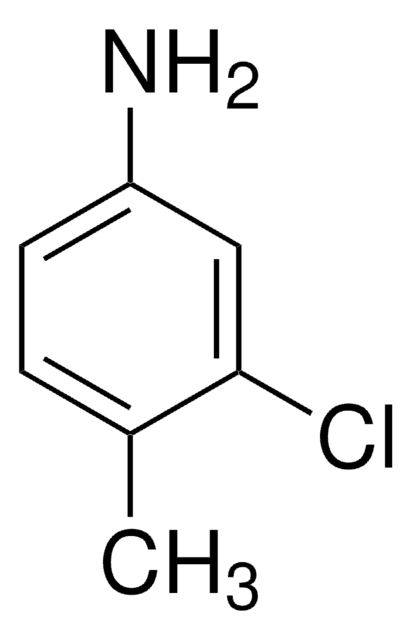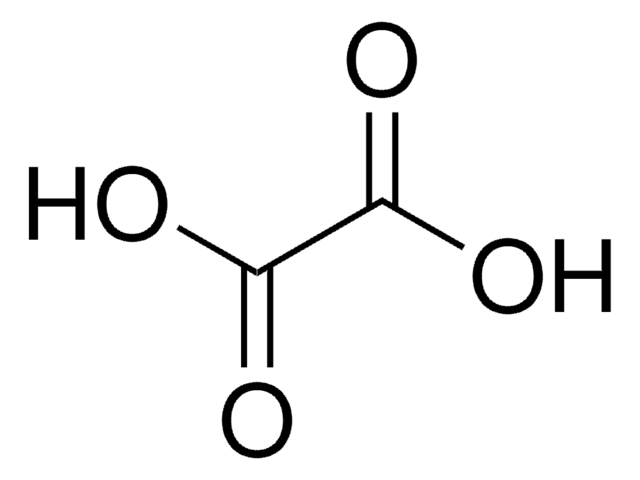251275
Citric acid
ACS reagent, ≥99.5%
Synonym(s):
2-Hydroxy-1,2,3-propanetricarboxylic acid, 2-Hydroxypropan-1,2,3-tricarboxylic acid
About This Item
Recommended Products
grade
ACS reagent
Quality Level
Assay
≥99.5%
form
crystals
expl. lim.
8 %, 65 °F
impurities
Substances carbonizable by hot sulfuric acid, passes test
ign. residue
≤0.02%
pKa
(1) 3.13, (2) 4.76, (3) 6.4
mp
153-159 °C (lit.)
anion traces
chloride (Cl-): ≤0.001%
oxalate (C2O42-): passes test (limit about 0.003%)
phosphate (PO43-): ≤0.001%
sulfate (SO42-): ≤0.002%
cation traces
Fe: ≤3 ppm
Pb: ≤2 ppm
functional group
carboxylic acid
hydroxyl
SMILES string
OC(=O)CC(O)(CC(O)=O)C(O)=O
InChI
1S/C6H8O7/c7-3(8)1-6(13,5(11)12)2-4(9)10/h13H,1-2H2,(H,7,8)(H,9,10)(H,11,12)
InChI key
KRKNYBCHXYNGOX-UHFFFAOYSA-N
Gene Information
human ... SRC(6714)
Looking for similar products? Visit Product Comparison Guide
General description
Application
- Phosphate citrate buffer for use in enzyme-linked immunosorbent assay.
- Citrate-stabilized ceria aqueous sol, which was employed in the synthesis of cerium oxide nanoparticles.
- Citric acid-Na2HPO4-buffered stock solution for use in the determination of fecal urease activity.
- Anticoagulant citrate dextrose solution A (ACD-A), which is employed during the isolation of blood-derived endothelial progenitor cells.
Citric acid has also been used:
- In a novel process which allows controlling of the particle size during the synthesis of palladium cuboctahedrons.
- To prepare citric acid-derived carbon nanodots (CNDs) by bottom-up carbonization method.
- As a bi-component chelating agent for the synthesis of Li4Ti5O12 (lithium titanate oxide) by a novel sol–gel method.
Other Notes
Legal Information
Signal Word
Warning
Hazard Statements
Precautionary Statements
Hazard Classifications
Eye Irrit. 2 - STOT SE 3
Target Organs
Respiratory system
Storage Class Code
11 - Combustible Solids
WGK
WGK 1
Flash Point(F)
Not applicable
Flash Point(C)
Not applicable
Personal Protective Equipment
Choose from one of the most recent versions:
Certificates of Analysis (COA)
Don't see the Right Version?
If you require a particular version, you can look up a specific certificate by the Lot or Batch number.
Already Own This Product?
Find documentation for the products that you have recently purchased in the Document Library.
Customers Also Viewed
Our team of scientists has experience in all areas of research including Life Science, Material Science, Chemical Synthesis, Chromatography, Analytical and many others.
Contact Technical Service






